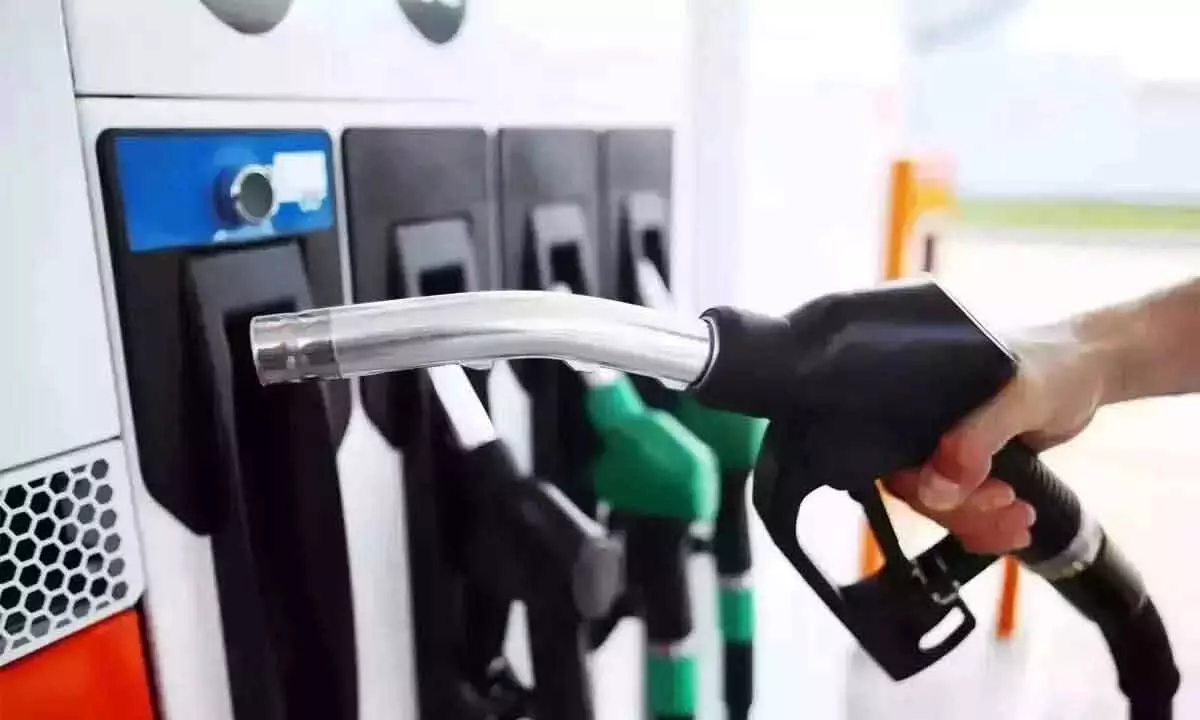Debate on fuel prices must yield result
The economics and politics of freebies and populism continue unabated
image for illustrative purpose

Prime Minister Narendra Modi's comments on taxation on petroleum products have triggered a debate, which is political in nature; and politicians have reacted on party lines. The debate is expected to generate a lot of heat and dust but no light. At the heart of the issue, however, is the matter of the precarious fiscal situation, both at the Centre and in states.
Interacting with Chief Ministers, the Prime Minister said that in order to reduce the load of petrol and diesel prices, the Central government reduced the excise duty and requested the states also to reduce taxes. While some States reduced taxes, others did not pass on the benefits to the people, leading to the higher cost of petrol and diesel in these states, he added.
This is not only injustice towards the people of the State but also harms the neighboring States, he said. "States like Karnataka and Gujarat undertook the tax reduction for the welfare of the people despite revenue loss while their neighboring states earned revenue by not reducing tax."
"Many States like Maharashtra, West Bengal, Telangana, Andhra Pradesh, Tamil Nadu, Kerala and Jharkhand did not agree to our request for some reason or the other, and the burden on the people of these States continued," the Prime Minister said: "I would not go into how much revenue these states gained during this period. But, now I am urging you that in the interest of the nation, please undertake what should have been done six months back in November. Give consumers in your State the benefit by lowering the VAT."
Opposition-ruled states promptly challenged the Prime Minister's statement. TRS leader and Telangana Chief Minister K Chandrasekhar Rao was one of them. Minister KT Rama Rao blamed the Central government for costlier fuel. TMC leader and West Bengal Chief Minister Mamata Banerjee called the interaction with Modi as "completely one-sided and misleading." Maharashtra Chief Minister Uddhav Thackeray also reacted in a similar fashion.
Kerala Finance Minister KN Balagopal blamed the cess and surcharge levied by the Centre for higher petrol and diesel prices. Political bickering will continue but this won't help the fiscal situation. The Centre's fiscal deficit was 6.9 per cent for 2021-22; for the present fiscal too, it may be in the region of 6.7 per cent, above the Budget target of 6.4 per cent on account of free foodgrains.
State finances are also not very good. According to a November 2021 report by the Reserve Bank of India, "In recent years, states' outstanding debt has showed a gradual upward movement due to inter alia implementation of UDAY, farm loan waivers, and the growth slowdown in 2019-20. Pandemic-related revenue losses and additional expenditure increased the debt-GDP ratio in 2020-21 (RE). The debt-GSDP ratio is expected to increase for 18 states and UTs during 2021-22."
NK Singh, who was chairman of the 15th Finance Commission, recently said that "both the economics and politics of freebies are deeply flawed. It is a race to the bottom. Indeed, it is not the road to efficiency or prosperity, but a quick passport to fiscal disaster."
Unfortunately, the economics and politics of freebies and populism continue unabated. They cost money. One consequence is costlier petroleum products. At present, the price of international crude is high, but retail fuel prices were high even when crude was cheaper. Instead of scoring brownie points with each other, all political parties should chalk out red lines of populism that they pledge not to cross. Only this can stop th7e race to the bottom.

